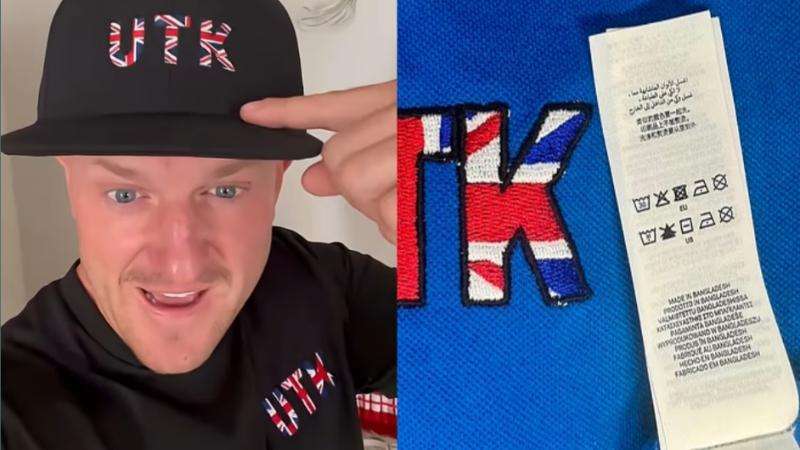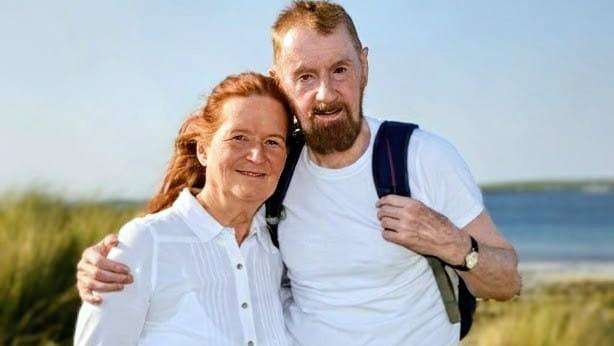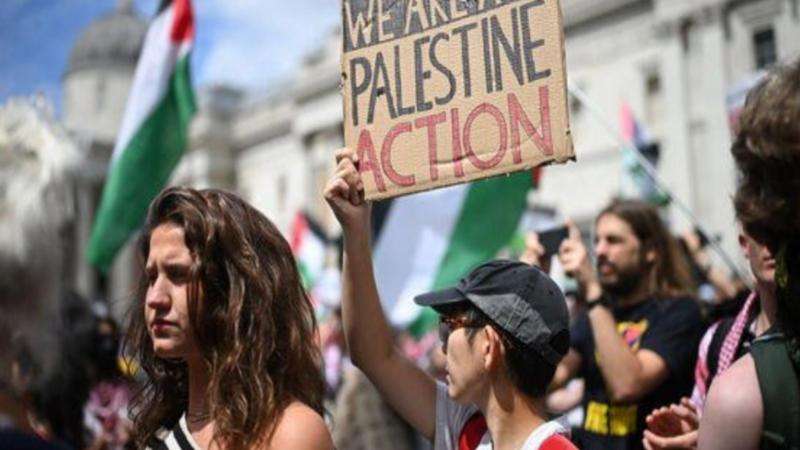In a deeply contentious vote that has sent ripples of concern across civil liberties groups and pro-Palestine advocates, the UK House of Commons has voted overwhelmingly to proscribe Palestine Action as a terrorist organization. The legislation passed with a significant majority of 359 votes (385 in favour to 26 against), moving closer to making membership or support for the direct action group a criminal offence punishable by up to 14 years in prison. This decision, expected to be debated and voted on by the House of Lords tomorrow before becoming law as early as Saturday, has ignited fierce debate about the boundaries of protest and the use of anti-terrorism legislation.
The government's move comes in the wake of Palestine Action claiming responsibility for vandalizing two planes at RAF Brize Norton last month, an incident that led to the arrest of five individuals on suspicion of a terror offence. Palestine Action is actively pursuing a legal challenge against the proscription, with a crucial hearing anticipated on Friday to determine if the ban can be temporarily blocked pending further proceedings.
The vote has drawn particular attention to how MPs, especially those from Muslim and Bangladeshi backgrounds, navigated this sensitive issue.
Muslim and Bangladeshi Origin MPs Who Voted AGAINST the Ban:
A notable contingent of MPs, including several from Muslim and Bangladeshi backgrounds, stood against the proscription, highlighting concerns about its implications for civil liberties and the right to protest. Their votes underscore a significant division within Parliament regarding the nature of Palestine Action's activities and the appropriate response.
The following MPs voted against banning Palestine Action as a terrorist group, a list that includes several prominent Muslim and Bangladeshi origin parliamentarians:
Diane Abbott (Labour - Hackney North and Stoke Newington) (Proxy vote cast by Bell Ribeiro-Addy)
Shockat Adam (Independent - Leicester South)
Tahir Ali (Labour - Birmingham Hall Green and Moseley)
Apsana Begum (Independent - Poplar and Limehouse) (Proxy vote cast by Ian Byrne)
Siân Berry (Green Party - Brighton Pavilion)
Richard Burgon (Labour - Leeds East)
Ian Byrne (Labour - Liverpool West Derby)
Ellie Chowns (Green Party - North Herefordshire)
Jeremy Corbyn (Independent - Islington North)
Carla Denyer (Green Party - Bristol Central)
Colum Eastwood (Social Democratic & Labour Party - Foyle)
Imran Hussain (Labour - Bradford East)
Adnan Hussain (Independent - Blackburn)
Kim Johnson (Labour - Liverpool Riverside)
Clive Lewis (Labour - Norwich South)
John McDonnell (Independent - Hayes and Harlington)
Grahame Morris (Labour - Easington)
Adrian Ramsay (Green Party - Waveney Valley)
Zarah Sultana (Independent - Coventry South)
Nadia Whittome (Labour - Nottingham East)
The presence of several Muslim and Bangladeshi MPs on this list reflects a strong sentiment within their communities regarding Palestinian rights and the concern that proscribing a direct action group could stifle legitimate forms of protest. Many argue that acts of property damage, while illegal, do not constitute terrorism and that existing criminal laws are sufficient to address such incidents without resorting to draconian anti-terror legislation.
Concerns Over Civil Liberties and Freedom of Expression
Critics, including human rights organizations like Amnesty International, have strongly condemned the proscription, labeling it an "unprecedented legal overreach" and warning of its potential "chilling effect" on free speech and the right to protest. They argue that equating property damage with acts of terrorism sets a dangerous precedent, potentially criminalizing a wide range of activist activities and putting peaceful protesters on par with groups like Al-Qaeda or ISIS.
Amnesty International UK's CEO, Sacha Deshmukh, emphasized that the decision risks "an unlawful interference with the fundamental rights of freedom of expression, association and peaceful assembly." Independent lawmaker Zarah Sultana, who voted against the ban, vociferously stated that "to equate a spray can of paint with a suicide bomb isn't just absurd, it is grotesque. It is a deliberate distortion of the law to chill dissent, criminalise solidarity, and suppress the truth."
While the government maintains that the proscription is necessary for national security and to address escalating criminal activities, the vote highlights a deep ideological chasm in Parliament and wider society over how to balance security concerns with the fundamental tenets of democratic protest. The outcome of Palestine Action's legal challenge on Friday will be closely watched, as it could potentially shape the immediate future of this contentious ban.








.svg)
